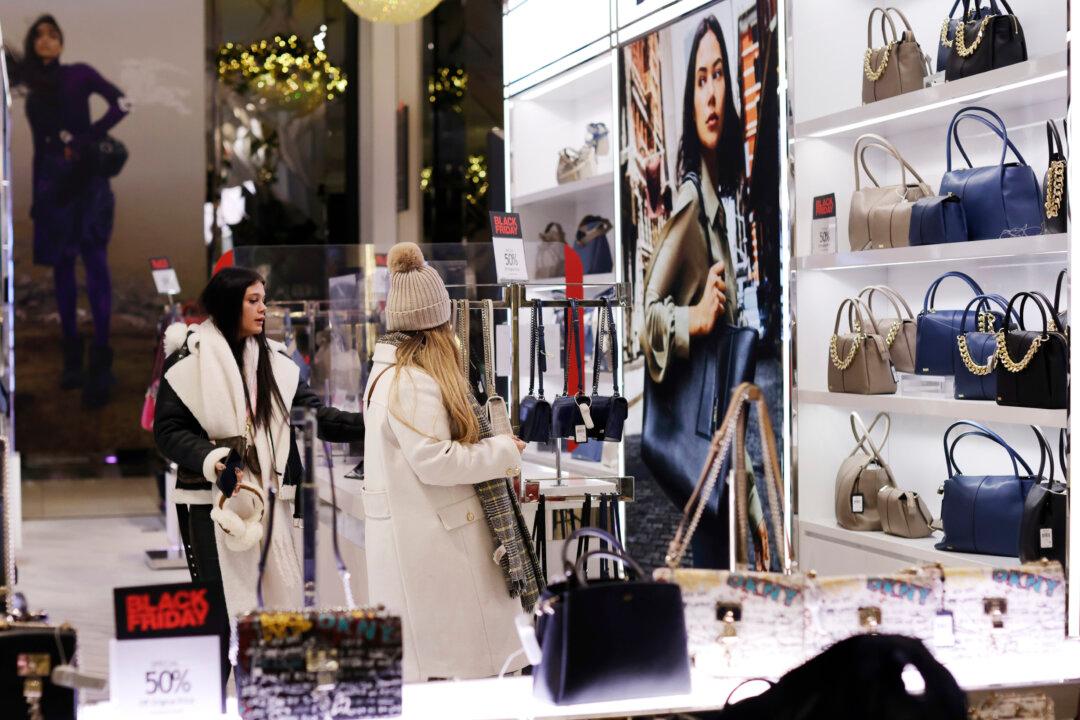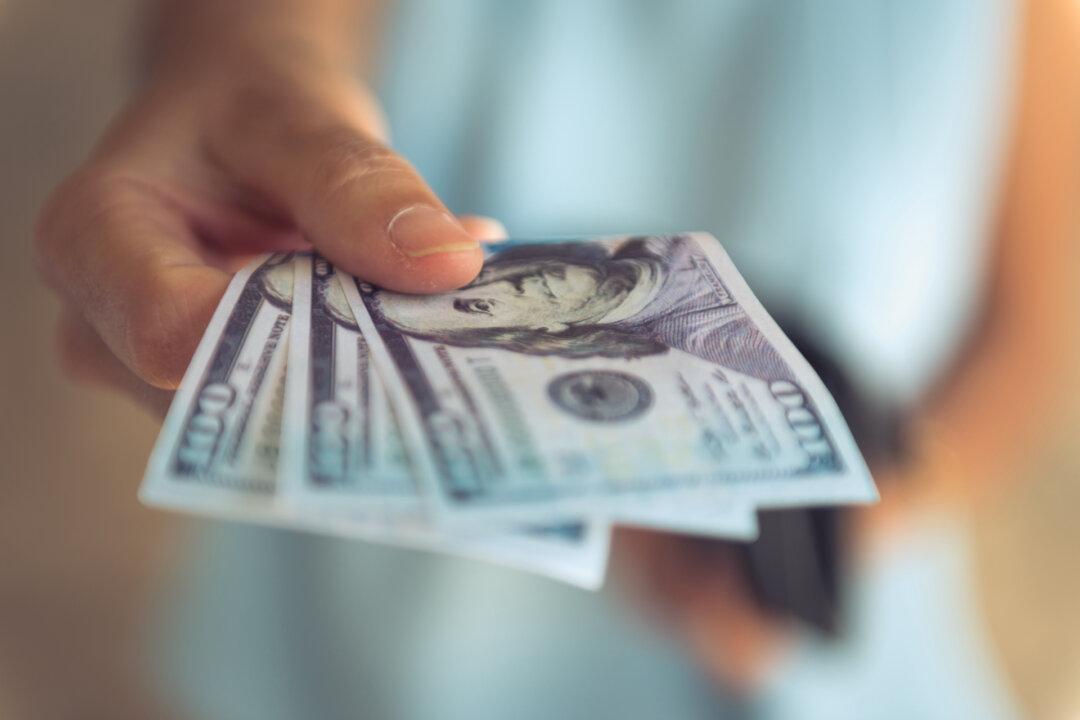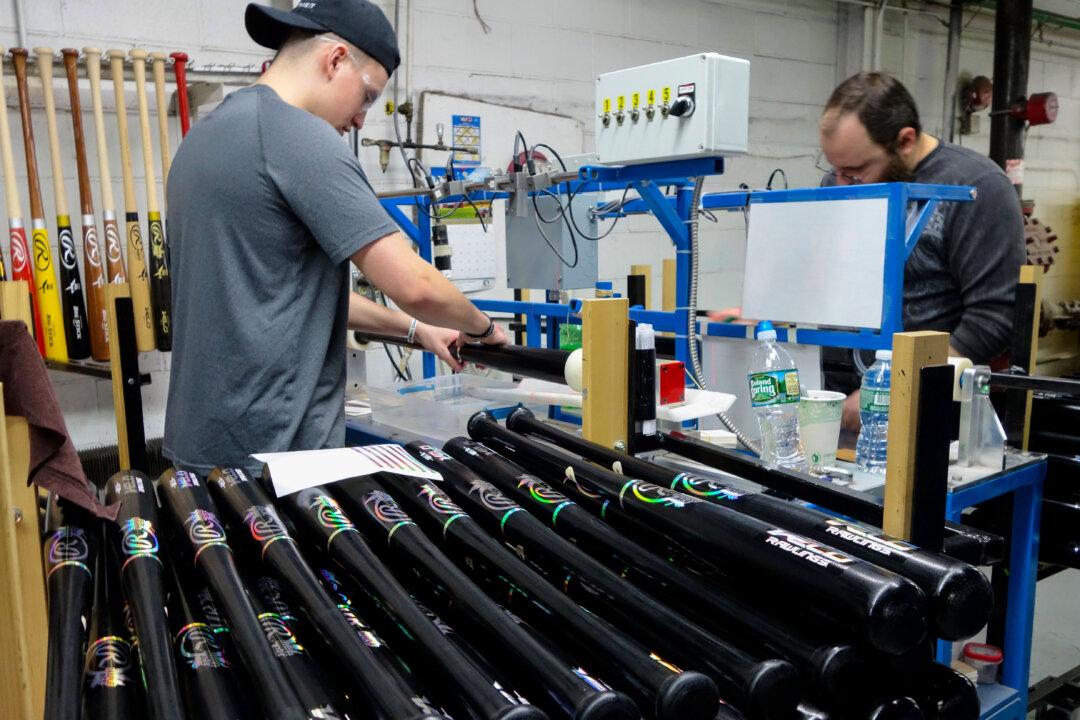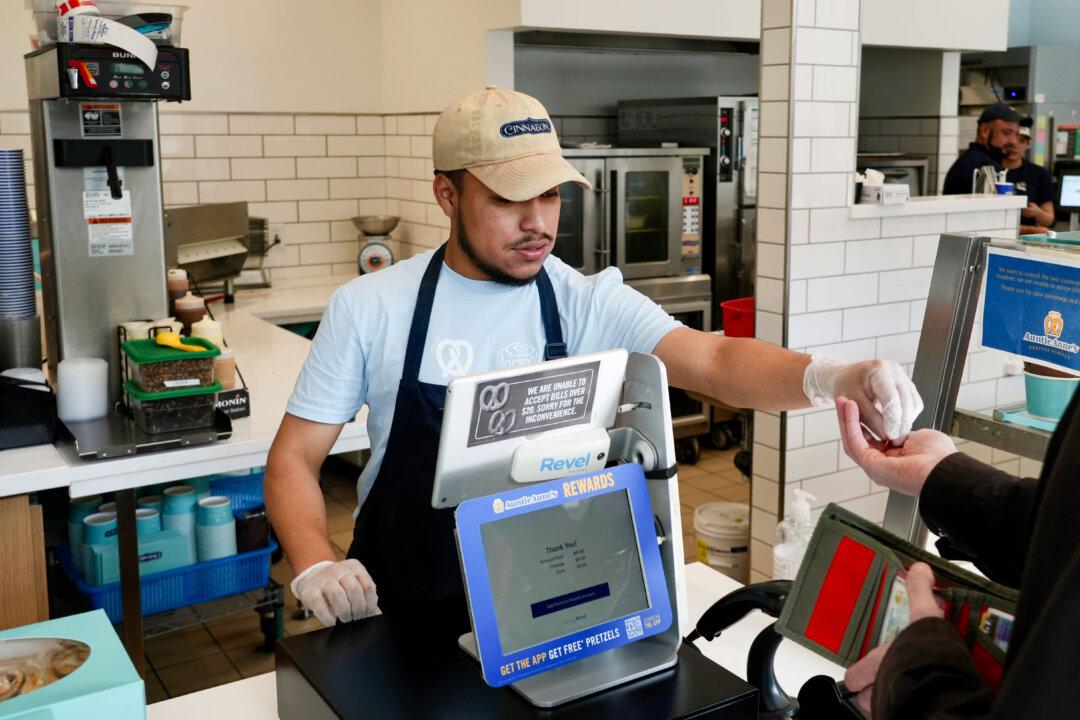Record-high shopping levels over the Thanksgiving weekend and record-high credit card debt prove that Americans are not concerned about the nation’s current economic issues, with consumer prices and interest rates continuing to climb. Some are pointing to this sometimes wreckless spending as a psychological condition that emerged from the COVID-19 lockdown, called “You Only Live Once” (YOLO).
“The spending could be the pent-up demand or even psychological issues since the pandemic,” Sherman Standberry, a CPA and managing partner with My CPA Coach in Atlanta, Georgia, said to The Epoch Times. “A lot of mental health issues came out of the lockdown and affected how people spend money so carelessly now. Also, we’ve seen a behavior change with homeownership, which is not a possibility for many in how they spend their money. They may be losing hope for the future and that’s why they’re spending with this YOLO mentality.”
The National Retail Federation reported a record 200 million people shopped in the five days from Thanksgiving to Cyber Monday, representing a 2 percent increase from last year. Credit card debt has also hit record highs, with American consumers now holding a never-before-seen $1 trillion credit card debt. And that debt has become more expensive than ever, with the Federal Reserve’s interest-rate increases contributing to a 22 percent rise in credit card interest rates.
An estimated 76 million people shopped at brick-and-mortar stores and another 90 million online, according to data from Adobe Analytics Shoppers, this year spent a Black Friday record $9.8 billion, up 7.5 percent increase from 2022. But overspending in the United States has become more than a holiday-based issue, with 60 percent of Americans now living paycheck to paycheck, according to a May 2023 Lending Club report.
“There’s no doubt that there’s a YOLO factor that came out of the pandemic and has seen a noticeable pick up for the last two years. It’s surprising that it’s lasted that long,” Ted Rossman, a senior industry analyst at Bankrate, told The Epoch Times. He says that consumers aren’t just buying stuff; they’re still buying experiences. “We thought that spending on revenge travel, dining, and concerts was out of our system last year and people might start cutting back this year. We’ve now had a full two-year surge in experiential spending.”
That experiential spending in the United States is showing little sign of waning. Taylor Swift’s “Era Tour” broke concert records this year, with the average ticket price at $1,400. According to Live Nation Entertainment Inc., which owns Ticketmaster, the company is already seeing record levels of concert demand for 2024. Conference Board data published in late summer showed that 21.8 percent of Americans plan to visit a foreign country through February 2024.
A new Bankrate survey also found widespread YOLO spending has also affected savings. Among the findings, Bankrate found that 22 percent of Americans haven’t contributed to their retirement savings in the past year, with 41 percent of U.S. adults believing their retirement funds are insufficient and keeping them from feeling financially secure.
“Most people are pretty close to the edge. They have under-saved for emergencies. I suppose people could quibble about the economic impact on discretionary spending, but to each his own,” Mr. Rossman said. “It’s worrisome that savings are down, but I do think the perception of the economy is worse than reality.”
Just in time for Christmas, Buy Now Pay Later (BNPL) has emerged for those consumers who have maxed out their credit cards or don’t have enough cash to purchase items. The BNPL option was trendy during the pandemic and could grow to $3.7 trillion by 2030, according to Straits Research, which reported that 360 million people globally now use the service.
But Mr. Standberry says no matter how people pay for goods, the excesses seen today represent a prevalent negative consumer mentality. “Savings is going to nothing; they’re withdrawing from their 401(k)s and losing hope for the future in what they’re doing,” he said. “Honestly, it’s a mental health issue with people making very poor choices and spending money recklessly.”
But some analysts, like Mr. Rossman at Bankrate, say that despite the tough housing market and increased prices, consumers keep spending money because their perception of the economy is better than the actual numbers. “If you ask people how they feel about the economy, Pew research says about 80 percent think it’s good or fair. We still have one of the best job markets in 50 years, and I think that explains some of the disconnect,” he said. “People have more money than we realize, but some are using credit cards to get by.”





